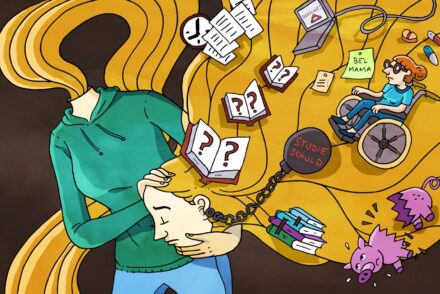Dutch municipal elections for dummies
Are the flyers that flutter around in the wind and the posters with roguish politicians getting on your nerves yet? In case you wonder what is happening: the municipal elections are approaching and they are less interesting and more important than ever, all at the same time. A crash course in Dutch municipal politics.
The turnout for the municipal elections has been decreasing for years. It is a common opinion that the municipal government is not in the position to really change anything and most voters aren’t well-informed about local politics. Fourteen parties are in the running for forty five seats. These are parties that operate nationally as well, like PvdA, CDA, VVD, but also local parties, like Tilburgse volkspartij (Tilburgian people’s party) or Leefbare Wijken en Dorpen (Livable Communities and Villages).
Municipal governments get more and more responsibilities over the years. They take on tasks that used to belong to the national government, like youth care, care of disabled people and of the elderly. Critics say that it takes a specialist to manage these tasks properly and that councillors will only be consulted after most of the work is already done. A big part of the money that is needed for this tasks is still managed by the national government, so the influence of the council is limited. This is strengthened by the fact that locally, a lot of other parties play a role, like banks, big companies and health care institutions.
Partially because of all this, the council has lost its popularity, so a lot of good politicians don’t run for a seat anymore. This only makes matters worse in the long run. There’s no trust among the voters that councillers can actually change anything.
Still, a lot of people do want to make a stab at municipal dominion. And they do so with some strange methods and posters. In Rotterdam, there’s a riot about a VVD’s poster that reads ‘In Rotterdam we speak Dutch’. The chairman of the Executive Board of Erasmus University Rotterdam, Pauline van der Meer Mohr, reacted furiously. On Twitter she says she is trying to create a welcoming environment for international students and scientists, and the VVD isn’t helping by hanging these posters. Here in Tilburg, posters that have text in Turkish caused (link in Dutch) the same effect. And we haven’t even discussed some of the posters yet. Some of them are sort of funny, others just plain wrong. And, last but not least, a big effort is made to create a video for the Tilburg elections. This little masterpiece is called The Choice of Tilburg. And yes, that is a Voice of Holland reference.
In some media, the elections are now seen as a popularity test. If the turnout is even lower than it was last time, it could mean that the council isn’t that important to voters anymore. Some plead that that’s why we should vote, to show that we care.
So now you know. Don’t worry, it will be done after the 19th of march. After that, this won’t be the first thing you see when you walk out of the central station.






